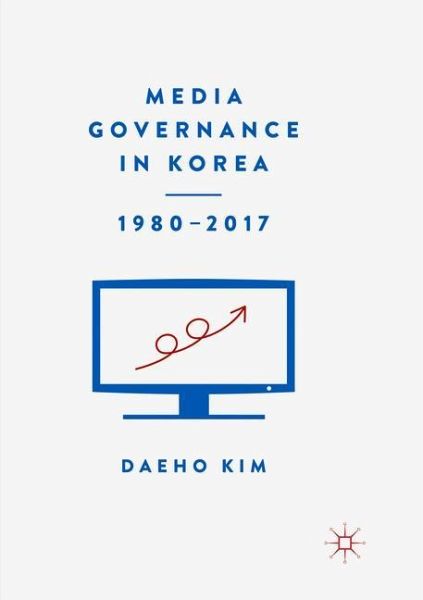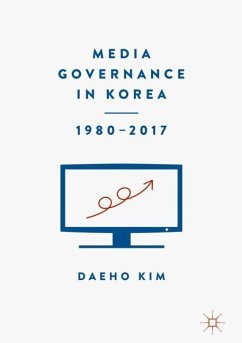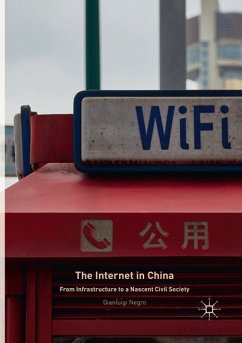
Media Governance in Korea 1980-2017
Versandkostenfrei!
Versandfertig in 6-10 Tagen
49,99 €
inkl. MwSt.
Weitere Ausgaben:

PAYBACK Punkte
25 °P sammeln!
This book deals with the changes in Korea's media governance between 1980 and 2017. It addresses this change by applying media governance frameworks, which emphasizes citizen participation and the impact of globalization. It focuses on the formation of the media system in which not only government, but also the private sector and civil society, have interacted as multi-stakeholders and changed the media ecosystem from authoritarian to democratic. The Korean media sector is a rare case that shows how industrialization, democratization and informatization-with global influence-have influenced an...
This book deals with the changes in Korea's media governance between 1980 and 2017. It addresses this change by applying media governance frameworks, which emphasizes citizen participation and the impact of globalization. It focuses on the formation of the media system in which not only government, but also the private sector and civil society, have interacted as multi-stakeholders and changed the media ecosystem from authoritarian to democratic. The Korean media sector is a rare case that shows how industrialization, democratization and informatization-with global influence-have influenced and changed media governance.














